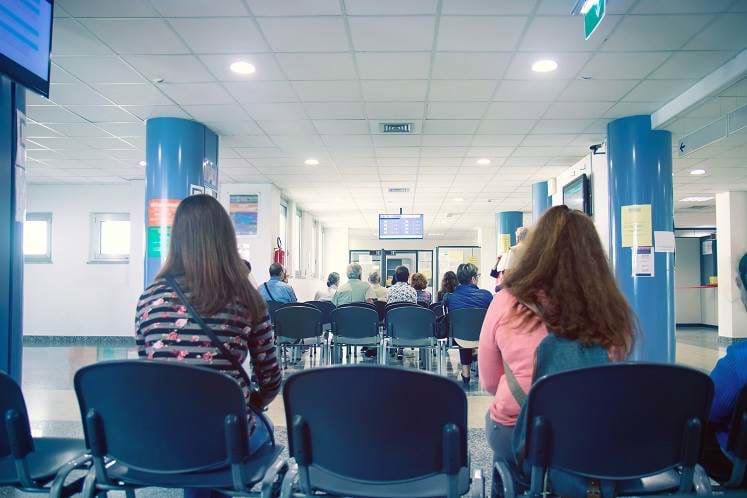What Are Cataracts?
According to the NHS, cataracts are when the lens inside your eye develops cloudy patches. The lens inside your eye is a small transparent disc. Over time, the patches that develop on the lens usually become bigger. This typically causes blurry and misty vision. It can sometimes for some people eventually go on to cause blindness for the individual affected.
Cataracts are usually associated with the ageing process unfortunately and usually appear in both eyes. They may not necessarily develop at the same time or be at the same level in each individual eye.
Cataracts are not usually painful and do not tend to make your eyes red or irritated. However, if the cataracts are in an advanced stage or if you are suffering from another eye condition, your eyes may become red and irritable.
If your cataracts are not too bad, it may be recommended that things such as brighter reading lights and stronger glasses may help for a little while. However, it is likely that the cataracts will get worse over time which means that you may eventually need surgery in order to remove the lens affected and replace this with a new, clear, artificial lens. Unfortunately, surgery is the only treatment that has proven to be effective for cataracts.
What Is Involved In Cataract and Lens Implant Surgery?
Cataract surgery comes with a high success rate according to statistics obtained by the NHS. The surgery is usually a very straightforward procedure that typically takes around 30 to 45 minutes on average. The surgery is often carried out as day surgery under a local anaesthetic which means that you should be able to go home on the same day as you had the surgery.
During the operation, the surgeon makes a tiny cut in the eye to remove the cloudy lens and they will then replace it with a clear plastic lens. Following the surgery, most people will need to wear glasses of some type for some tasks such as reading. This will be the case regardless of the type of lens that the person has had fitted. If you have cataracts in both eyes, it may be recommended to you that both eyes are treated on the same day. If the medical professional thinks you may be at a higher risk of complications, the surgery is done on each eye around 6 to 12 weeks apart to allow the recovery to take place one eye at a time. If you only have one eye operated on, the NHS estimate that it can take between 2 to 6 weeks to fully recover from cataract surgery.
The benefits of having cataract surgery are that following the surgery, you should be able to see things in focus, tell the difference between different colours and look into bright lights without seeing as much glare as you usually would.
However, as with any surgery, there are some risks which are important to note. The NHS states that the risk of serious complications developing as a result of cataract surgery is estimated to be at around every 1 in 50 cases. The complications can include blurred vision, some loss of vision or a detached retina. Most of the serious complications can be treated further with medication or perhaps even further surgery. There does however remain a very small risk of permanent sight loss in the treated eye as a direct result of the operation. The risk of this is at around 1 in every 1,000 people who have the surgery.
Unfortunately, our client did suffer complications following her surgery but this was not one of the typical complications that is listed by the NHS. Instead, she experienced a refractive surprise following surgery which is defined as the failure to achieve the intended post operative refractive target according to the Royal College of Ophthalmologists. This can go on to cause anisometropia which is a condition of asymmetric refraction between two eyes or alternatively it can cause dominance, where your dominant eye switches to the other eye.

How We Helped
After taking on the case our Medical Negligence Lawyers started investigations by obtaining a copy of the client’s medical records. We also appointed an expert Ophthalmic Surgeon (an eye specialist) to establish whether or not the care that was provided during the cataract surgery was of an acceptable standard.
The expert Ophthalmic Surgeon’s report concluded that the client’s surgeon had failed to take into account her previous laser vision correction when calculating and determining the intra-ocular lens power for the lens, which was inserted by him after the removal of the cataract.
Once a case was established, our expert Medical Negligence Lawyers sent a Letter of Claim to the NHS Hospital Trust setting out the basis on which it was considered that the care had been negligent. This outlined what injuries our client had sustained and the financial losses that had been suffered because of the negligence.
The NHS Hospital Trust admitted liability, in full, for the surgeon’s error during cataract surgery.

The Outcome
Our client subsequently underwent corneal laser refractive surgery which successfully corrected the imbalance in her vision. She was also awarded damages of £8,000 in compensation for the pain and suffering she endured whilst waiting for the corrective laser surgery.
Additionally, if you have found yourself in a similar situation and think you may have a claim for negligence against a medical professional or a hospital, you can contact our friendly team of expert Medical Negligence Solicitors by calling us today on 0800 260 5010. You can alternatively request a call back from one of our friendly team members.













